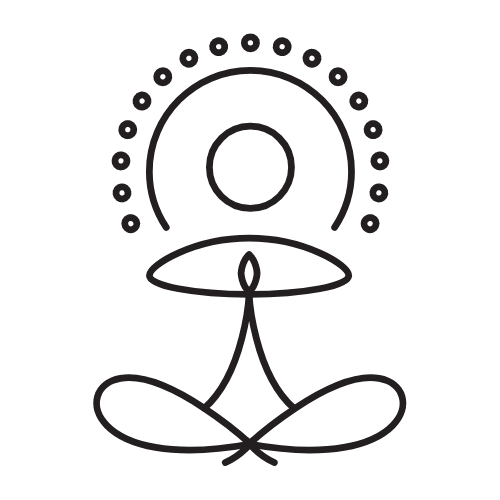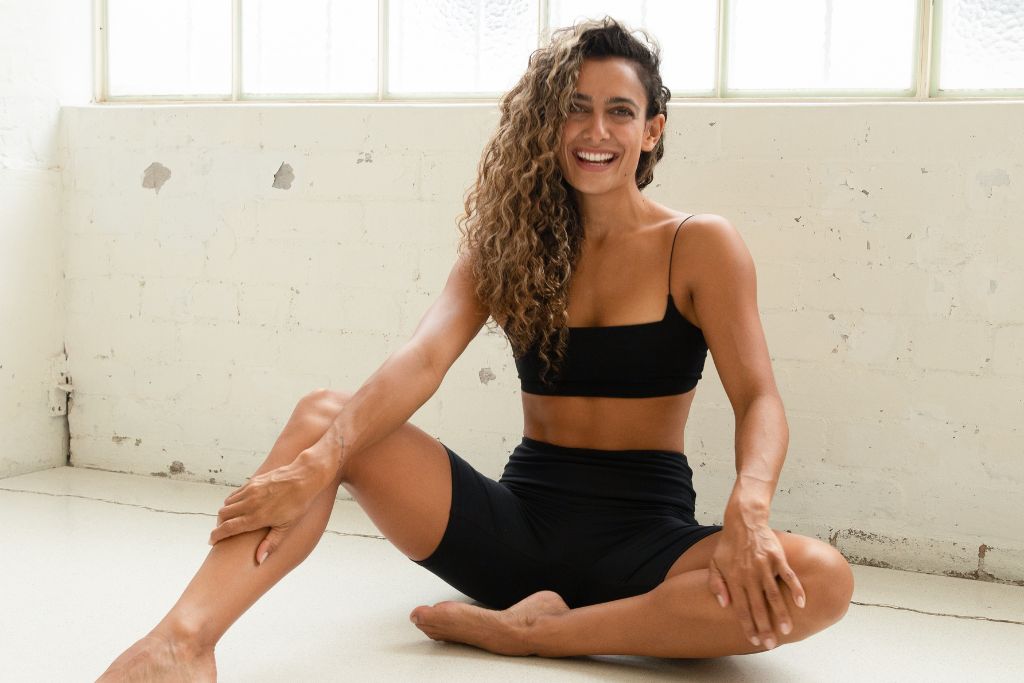Shona Vertue’s dulcet tones are enough to bring you an instant sense of zen, and we’re incredibly proud to be bringing you new guided meditations with her every week on the YogaFokus Daily podcast. As a renowned personal trainer and yoga teacher, Shona is passionate about placing just as much importance on mindfulness, rest and recovery as the hours you spend training in the pursuit of your physical fitness goals.
If you’re at the very beginning of your meditation journey and feeling daunted, frustrated or confused – this one’s for you. Meet Shona and let her guide you through some of the essentials, pitfalls and misconceptions of a meditation practice. It won’t always be easy (it’s called a practice for a reason!), but it will definitely be rewarding and worthwhile.
Lower the stakes
When embarking on your own meditation journey, it can be incredibly easy to get ahead of yourself by comparing your own habits and progress with where you want to be or what you’ve been led to believe is the gold standard of meditation practice.
Stop. Take a breath and more importantly, take the pressure off. It’s time to set yourself a goal that’s so achievable it almost feels silly. While five minutes per day is an accessible entry point to meditation for many people, Shona is a big fan of lowering the bar even more. Instead of five or 10 minutes, start with five or 10 breaths.
“I really understand that feeling of being like, I can’t do this. I suck. It’s frustrating and it pushes meditation away even further,” she says, recommending you reframe it as something you can do. A meditation practice as simple as counting 10 mindful daily breaths on your hands is easy, achievable and transformative enough to have a noticeable effect. Start small, keep practicing and build consistency around that habit to begin with. Over time, the narrative you’re telling yourself about meditation will start to shift.
“Self-efficacy is the feeling that you can do or achieve something, and is one of the biggest indicators of whether someone will or will not engage in a health behaviour,” Shona says. “So if your running narrative is that you can’t do it or you suck at it or it’s just not for you, your self-efficacy is very low.”
“Whether you think you can or you can’t, you’re right, so we need to change that narrative.”
Starting your meditation journey with something as simple as 10 daily breaths is a way to hack your self-efficacy by intentionally underestimating yourself and setting the bar low to quickly prove to yourself just how capable you are. After a month when that has become a habitual practice, add a couple more breaths. Take baby steps and create easy wins for yourself as we lay the foundation for a consistent and rewarding practice.
Getting frustrated? Get curious instead
When Kayla and Shona reflect on their own meditation experiences on YogaFokus Daily, Kayla’s struggle lies with the constant mental chatter and the seemingly impossible task of closing the million tabs she has open in her brain. To her, meditation feels like a fight against the noise, but Shona says one of the biggest misconceptions is that successful meditation is when the mind is silent. In fact, there is another way you can approach it.
“You don’t need to hate it as much as you do,” she says reassuringly. “You don’t need to fight the noise, but it’s worthwhile understanding why it’s there. We’re all going to have differing reasons for why we can’t sit in our stillness. What is it that makes it uncomfortable for you to sit there? Is it your body? Is there an emotion you’re experiencing that’s coming up? Is there a particular thought that’s constant? It’s just about asking questions and getting curious about your racing mind.”
Rather than throwing shade on your racing mind and getting frustrated, remember that the nature of the mind is to think, so go easy on yourself. Sit with it, let your racing mind remind you how beneficial it is for you to practice stillness, and every time you notice your mind is wandering away from the present moment, just come back to your breath. That is the practice.
“Think of it like a bicep curl,” Shona adds. You can tell yourself you can’t do it because your biceps suck and bicep curls just aren’t for you, but that’s not helpful. The answer? You do the reps at an achievable level.”
“Think about it in that way. Every time you come back to the present, you’re training the reps of your meditation ability.”
Meditation is like a muscle
According to the American Psychological Association, mindfulness meditation has been shown to reduce stress and rumination, boost immunity, memory, focus and cognitive function, and even improve relationship satisfaction. And if working on your strength and fitness (or resilience) is a key focus in your life, meditation can help with that, too!
“To relate meditation back to fitness, there are huge benefits because it’s going to improve your capacity for grit,” Shona explains.
“If you have trained your mind to sit in discomfort, think about how that translates into your workouts or any difficult moment in your life. You have the capacity to handle it way better than if everything is making you feel overwhelmed.”
Meditation isn’t always a serene oasis – sometimes it’s uncomfortable, irritating and the last thing you feel like doing. Stick with it and remind yourself that just like in your workouts, every difficult moment isn’t a failure, it’s making you better.
Step into the best version of yourself with YogaFokus Daily
The new podcast from Kayla Itsines
Meditate with Shona
Want to dip your toe into the world of meditation with Shona as your guide? You can listen to Shona Vertue’s free guided meditations every Thursday on the YogaFokus Daily podcast. From pre-workout meditations to boost your energy to meditations to support a good night’s sleep – she’s got you.

